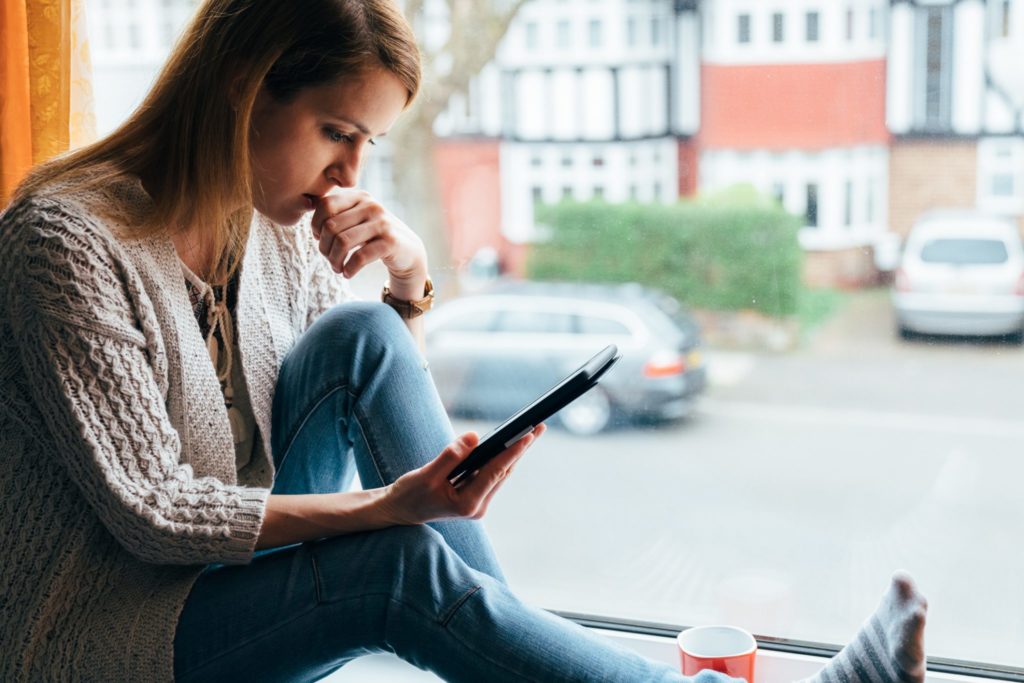With the introduction of the vaccine, restrictions have lightened, and life is starting to get back to normal. While many people are excited for these developments, many are also scared. If you are struggling with post-pandemic and re-entry anxiety, you are not alone. The Household Pulse survey estimates that anywhere from around 27% to 33% of Americans were showing symptoms of an anxiety disorder from April 23, 2020 to July 21, 2020. While life is starting to go back to normal, this same survey estimates that from January 6, 2021 to March 29, 2021, national anxiety levels were still in a range of around 29% to 36%.1 Although the physical health dangers from the virus may be decreasing in the United States, anxiety levels remain high.
How to Cope with Anxiety Post-Pandemic
Although the initial anxiety about the pandemic is decreasing, new fears and stressors are on the rise. The pandemic led to months of social isolation and little human interaction. Now, the idea of socializing, going back to work, and being in large crowds once more is giving some people pause. Don’t worry. Our behavioral healthcare professionals are sharing some tips on how to deal with post-COVID anxiety that could make re-entry a little easier.
1. Recognize Your Anxiety
The coronavirus pandemic has been an emotional rollercoaster for everyone. It is okay to feel triggered about getting to close to someone or being in a large crowd. Allow yourself to recognize that what you are feeling so you can then focus on how to overcome re-entry anxiety and minimize these symptoms.
2. Start Slowly
Give your mind and body some time to adjust. You may be tired of being stuck at home, but jumping right back into things could increase your post-pandemic anxiety. Instead, start slowly. Spend time with a few close, vaccinated friends or start adventuring outdoors more where there are fewer crowds.
3. Don’t Delay
Dealing with social isolation during the pandemic wasn’t easy on your mental health, but now being alone may feel like the norm. While it is hard to get out of your comfort zone, it will be even harder the longer you wait. So long as you follow CDC guidelines, you should start to get back out there.
4. Focus on the Positive
Anxiety is often related to negative and sometimes irrational thinking. Instead of letting yourself dwell on these thoughts, focus on changing your thinking and perception to be more positive. This approach may include no longer constantly checking the news, unplugging from social media, or taking a minute to examine your negative thoughts when they arise. This change may seem subtle, but it makes a huge difference in how you see the world, your fears, and how you behave.
5. Practice Deep Breathing
Another good way to deal with post-pandemic anxiety is to practice breathing exercises. Taking slow and intentional deep breaths can trick the brain into thinking you are relaxed. When you start to feel overwhelming or anxious by a situation, you can turn to these breathing exercises to help you calm down and recenter yourself.
6. Practice Self-Care
Whether you are dealing with anxiety after COVID or trying to cope with depression, practicing self-care can go a long way to give your mental health a boost. Try to eat healthy, get a good amount of sleep, and exercise regularly. When you make these habits a part of your regular routine, you may see significant improvements in your overall well-being.
7. Get Help
Coping with anxiety post-pandemic can be overwhelming, and it’s not something you should have to do alone. If you are struggling, it may be time to get formal anxiety treatment. A therapist or other profession can help you learn how to deal with post-COVID anxiety so that you can start looking forward to the future instead of dwelling on it. Struggling with post-pandemic and re-entry anxiety is common, but if your symptoms are not going away, we are here to help. At Vertava Health, we off a variety of mental health services to help people take back control of their lives. If you or a loved one needs help, contact us today to learn more and get started.


